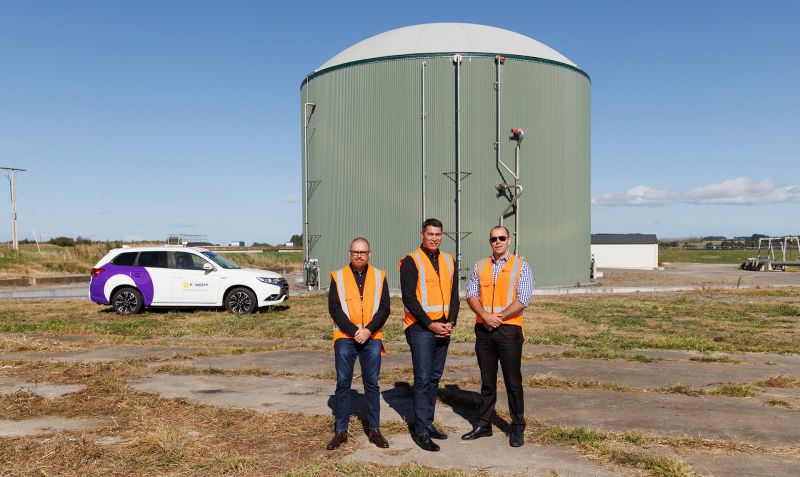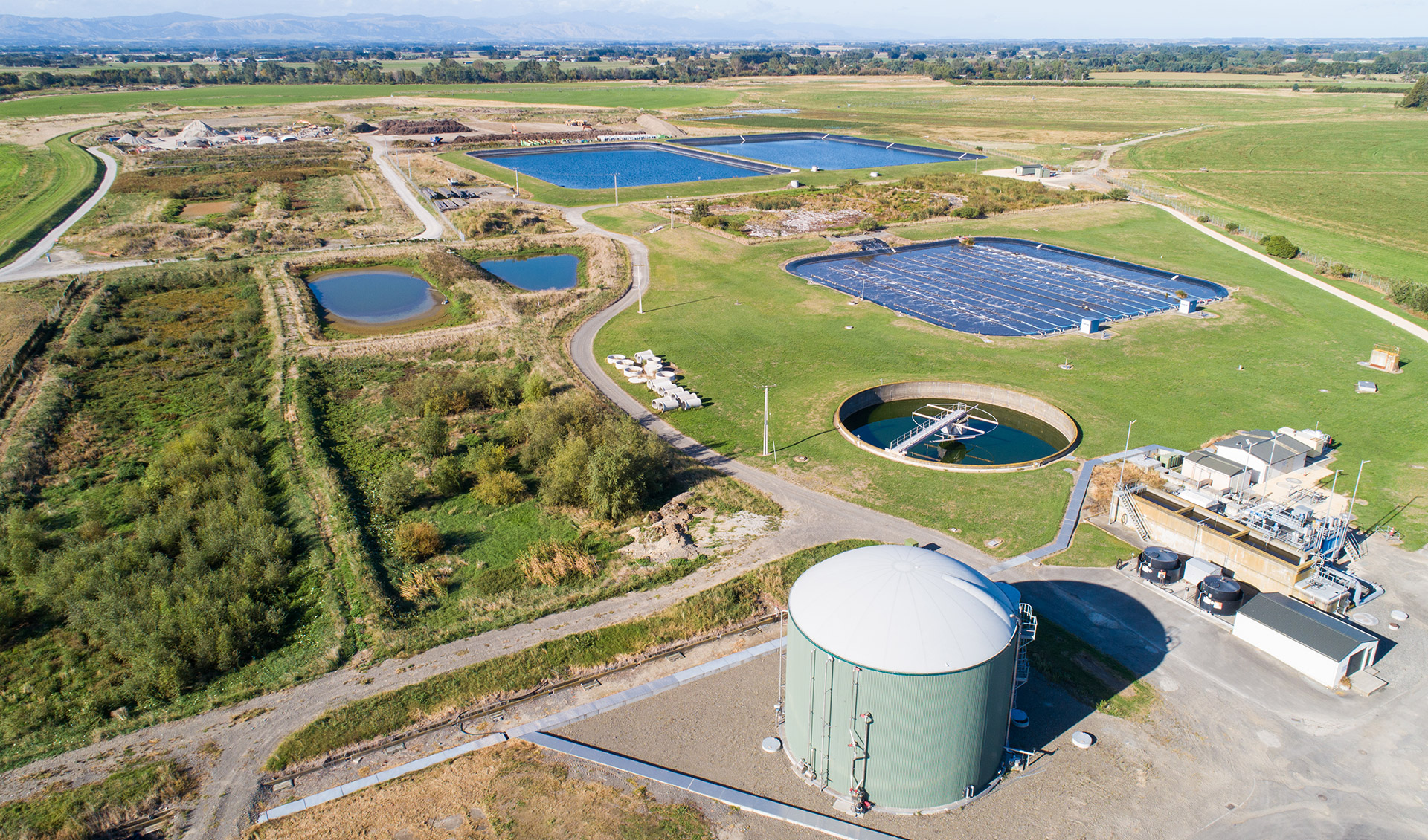Developing a Future-Focused Energy Solution
Turning Waste into Renewable Energy: Our Vision for Manawatū
For nearly a decade, Manawatū District Council has been exploring innovative ways to advance environmental sustainability, reduce reliance on landfill, support a circular economy and contribute to New Zealand’s energy resilience.
In 2024, this vision took a significant step forward through a strategic collaboration with Powerco. What began as a project to refine the biogas already produced onsite at the Manawatū Wastewater Treatment Plant in Feilding evolved into a broader initiative — exploring the potential to develop a lower North Island biomethane facility to receive organic waste from councils, commercial and industrial businesses and generate renewable energy through the installation of multiple anaerobic digesters.
As New Zealand faces increasing challenges to its energy resilience, every New Zealander can play a role in reshaping the energy market.
Manawatū District Council’s vision is a clean, circular solution which diverts everyday organic waste from landfill, transforming it into biogas, with the goal of feeding renewable energy back into the grid.
Community Powered Collaboration
It’s an ambitious goal! One that sets us apart, as few other councils have ventured into this territory but it’s not a vision we can achieve alone. By harnessing the power of collaboration, we’re bringing our community with us on this journey to success.
Through strong partnerships with the private sector, we’re tapping into industry expertise, established networks, additional capital, all while reducing the financial burden on ratepayers. At the same time, we’re working closely with central government to secure co-funding and making effective use of waste levies to help drive this initiative forward.

Representatives from Powerco and MDC at the Manawatū Wastewater Treatment Plant’s anaerobic digester.
What's Next?
As we finalise the funding partners to support the construction of or an organics reception facility and additional anaerobic digesters, we're excited to share a major milestone: Food Scrap collection is launching in Feilding this November.
This is more than just a new service —it’s the first step in what will become a monumental journey. By separating food scraps from general rubbish, Feilding residents will be directly contributing to a renewable future. These scraps will eventually become the feedstock for our very own anaerobic digesters, turning local waste into local fuel.
As the project progresses and funding is confirmed, we’ll keep the community informed every step of the way. This vision relies on all of us and when we succeed together, we all share in the benefits.
Explore the project further through the resources below and be part of shaping a more sustainable Manawatū.
Join the Vision. Divert the Waste. Fuel Our Future.
By using an anaerobic digestor, organic material such as food scraps, trade, and commercial waste naturally breaks down in an oxygen-free environment. Microorganisms digest the waste, producing biogas, a mix of methane and carbon dioxide. This biogas can then be refined and used for heating, generating electricity and as a renewable fuel. It’s nature’s own power plant!
An anaerobic digester aligns with several core goals:
- Energy Security & Resilience: Locally-produced biomethane offers a reliable energy source at a time of national supply pressure.
- Landfill Diversion & Resource Recovery: Organic waste is diverted from landfill and transformed into energy and fertiliser as a bi-product. This is a true circular solution.
- Local Economic Benefits: Long term surety of waste disposal costs once scale is achieved for key agricultural and manufacturing firms means cost savings for producers and flow-on benefits to ratepayers.
A Waste levy is a fee imposed by Ministry for the Environment on waste disposed of at landfill or other disposal facilities. The fees serve economic and environmental purpose as they promote recycling and refuse by making rubbish disposal more expensive than suitable alternatives. They also fund waste minimisation projects through the revenue collected.
If you're a resident or business in Feilding, you can be part of the solution by using the Food Scraps collection service launching this November. Every peel, bone, and leftover helps build the vital feedstock that will power our anaerobic digesters.
Outside of Feilding? No problem. Residents and businesses from across the district will be able to drop off their food scraps at the Manawatū Resource Recovery Centre on Kawakawa Road, Feilding where they’ll join the growing collection.
We’re always looking to grow our supply. If you're a commercial business or council in the lower North Island interested in collaborating with your food scraps, we’d love to connect. The more organic waste we collect, the more renewable energy we can produce together.

